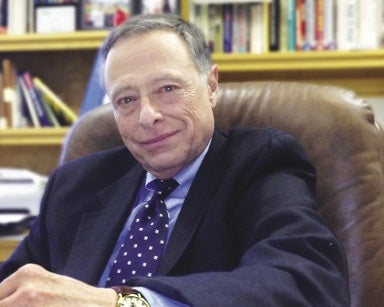When Dirk Burrowes emailed the Fitchburg Planning Department on a Sunday morning in 2001 about moving his Littleton-based business to the city, he got a response within hours.
“For a town to send me an email on Sunday, to actively be interested, to call me first thing Monday morning to say they wanted my business to be in Fitchburg was a breath of fresh air,” said Burrowes, president of Vytek Laser.
“Everything was just streamlined,” he said. “They wanted to know what they could do to build my business here in Fitchburg.”
Those early interactions were the start of a successful relationship.
“We wouldn’t move out of Fitchburg for anything,” Burrowes said.
Burrowes is a stakeholder in Fitchburg’s business community who hasn’t felt as if he’s been affected by factors that some say put a damper on business there.
One of those factors is the city’s dual property tax rate. Commercial and industrial property owners pay $25.26 per $1,000 of assessed value, while the rate for homeowners is $19.05.
“Our commercial tax rate structure is killing us, businesswise, for attracting new businesses and retaining the ones we have,” said City Councilor Marcus DiNatale. “When your community is 40 percent higher on your property tax bill than your neighbor’s, that is a major competitive disadvantage.”
He said the rates were established decades ago to keep taxes low for residential property owners, but added that they’ve failed as residents’ bills have increased and businesses have left the city. DiNatale said roughly 80 percent of the city’s tax base is residential and that when businesses vacate, they leave a budget gap that homeowners have to close.
Mayor Lisa Wong said she’d like to have a single rate, but acknowledged the difficulty in going back once dual rates have been established.
For some business owners like Bill Weissman, whose company, ModuForm, makes furniture for institutions like schools and health care facilities, the tax rate, along with the cost of energy provided by New Hampshire-based Unitil, are among the top concerns.
“Anything that’s going to increase your cost of doing business is going to make you less competitive,” he said.
“The cost of buying energy from Unitil is exorbitantly high compared to most other utilities,” Weissman said. Lunenberg, Townsend and Ashby also get their power from Unitil.
Unitil spokesman Alec O’Meara said the utility’s electric rates have been dropping over the past five years. For example, the average residential customer using 600 kilowatt (kWh) per month pays $118, but in 2008, the average bill for the same usage was $126.
In an email, he said all rates have been declining because of dropping natural gas prices. And with regard to the sentiment that Unitil rates hurt business in Fitchburg, O’Meara wrote, “Utility costs are but one factor in strong economic development … we are glad that gas prices have been driving utility costs downward in recent years as inflation is driving other costs upward.”
But not everyone is frustrated with Unitil. Burrowes, for one, said his company’s bill was cut in half when he moved from Littleton, partially because that town’s municipal light department’s rates are higher, he said.
And while acknowledging that utility rates are an issue for businesses, Wong said utility payments are typically just another line item.
“I think for big businesses, energy is certainly a huge part of their costs. However, (several have) been in business for many years — in many cases over a century — and they’re still doing business here,” she said, adding that firms may remain in Fitchburg because of the city working with them to find grants for employee retention or putting zoning processes online for easier access.
Mayor: Bigger Buildings Needed
Wong said the biggest issues the city faces in being friendly to business have to do with vacancy. She said there are five available buildings in Fitchburg, but none bigger than 100,000 square feet. Recently, New England Wire Products announced it was moving into Leominster because, according to Wong, the company outgrew its 85,000-square-foot facility in Fitchburg. The former Mohawk Wire building, which the firm purchased in Leominster, measures 300,000 square feet.
Wong said developments like that encourage her city to accelerate efforts to clean up brownfield sites — those found to have hazardous substances or contaminants — to make more space.
The fact that New England Wire chose to move just down the street when it was time to expand may speak to one point that business leaders say encourages them to stay in the area: work ethic.
“It’s primarily the workforce that continues to be a compelling reason for us to stay,” Weissman said.
Burrowes agreed. “If you look at the communities around here that had manufacturing … they’ve lost a lot of their manufacturing, but they still have skilled labor available who are willing to drive to Fitchburg,” he said.

